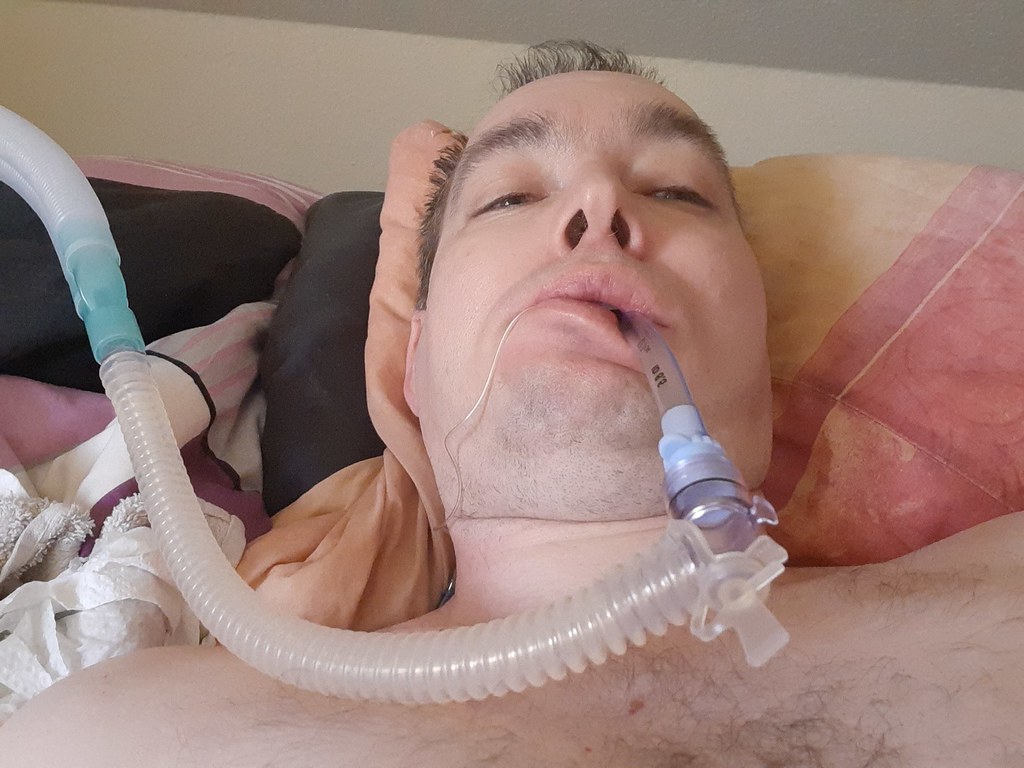In the domain of postoperative recovery, the incidence of coughing after neck surgery remains a topic of interest. This seemingly innocuous symptom can often be linked to a variety of factors such as damage to the larynx, post-surgical effects, or even the use of certain medications. As we navigate this intriguing subject, one must wonder, how might an understanding of these causes aid in patient management and comfort? What interventions can be employed to mitigate this persistent postoperative cough?
Understanding Neck Surgery
Neck surgery, an intricate medical procedure, involves the manipulation of the intricate structures within the cervical region to address a variety of health conditions. This procedure can range from minimally invasive interventions to major surgeries such as discectomies, fusion surgeries, and corpectomies.
Like all surgical procedures, neck surgery is associated with certain inherent risks. These include potential injury to the spinal cord or nerves, infection, bleeding, reaction to anesthesia, and even chronic pain. Moreover, specific complications such as dysphagia, or difficulty swallowing, and dysphonia, or voice changes, can occur due to the proximity of the surgical area to the throat and larynx.
Pre-operative preparation is pivotal to mitigate these risks and ensure the best possible outcome. A thorough evaluation of the patient’s overall health status, including any co-existing medical conditions, is performed. Diagnostic tests such as X-rays, MRI, or CT scans may be employed to delineate the precise nature and extent of the cervical pathology. Medication review is also important, with adjustments made as necessary to reduce the risk of bleeding or other complications. Informed consent, highlighting all potential neck surgery risks, is obtained after detailed discussion with the patient.
Post-Operative Coughing Phenomenon
While the aforementioned risks are widely recognized, one lesser-known but notable post-operative symptom that patients may experience following neck surgery is a persistent cough. This can be particularly distressing for patients, who may already be dealing with pain and discomfort from the surgery itself.
The post-operative coughing phenomenon can be attributed to several factors:
- Larynx damage: The larynx, or voice box, can be inadvertently damaged during neck surgery, leading to a persistent cough. The larynx plays a vital role in producing sound and protecting the windpipe from food and liquids. Damage to this area can result in a range of symptoms, including coughing.
- Cough suppressants usage: Post-operative patients may be prescribed cough suppressants to manage their symptoms. However, prolonged use of these medications can lead to dependency and could exacerbate the coughing.
- Residual surgical effects: The physical trauma from surgery can lead to inflammation and irritation in the throat and respiratory tract, resulting in a cough.
- Underlying respiratory conditions: Patients with pre-existing respiratory conditions may find their symptoms worsened post-surgery, leading to increased coughing.
Understanding and addressing these causes can help alleviate the discomfort associated with post-operative coughing.
Anesthesia and Coughing
The role of anesthesia in inducing post-operative coughing, particularly following neck surgery, is an aspect of critical clinical significance that warrants thorough investigation. Anesthesia is an indispensable component of surgical procedures, but it may inadvertently introduce complications, including post-operative coughing.
One potential cause of post-operative coughing is an allergy to anesthesia. Anesthesia allergies are relatively rare, but when they do occur, they can manifest as coughing, wheezing, and other respiratory symptoms. Inflammation provoked by an allergic reaction might irritate the airways, leading to coughing.
The sedative effects of anesthesia can also contribute to post-operative coughing. Sedatives used during anesthesia can suppress the body’s cough reflex, allowing secretions to accumulate in the airways. Once the effects of anesthesia begin to wear off and the cough reflex restores, the patient may start coughing in an effort to clear these secretions.
Future research should continue to explore the complex relationship between anesthesia and post-operative coughing, including the roles of anesthesia allergies and sedative effects. An improved understanding of these factors could lead to more effective strategies for preventing and managing post-operative coughing in neck surgery patients.
Tracheal Irritation After Surgery
Tracheal irritation following neck surgery is a potential underlying cause of postoperative coughing. The surgical procedure can directly impact the trachea, leading to inflammation and irritation. This can result in a persistent cough during the recovery period, necessitating further examination and treatment.
Surgery Impact on Trachea
One significant factor that can cause a post-surgical cough is the potential impact of the surgery on the trachea, often leading to tracheal irritation. This is particularly prevalent in cases where a tracheostomy is performed, which can present complications such as infection, bleeding or even tracheal stenosis.
- Tracheostomy complications: These can arise from surgical technique, patient anatomy, or postoperative care, leading to chronic cough.
- Posture impacts: The surgical positioning can impinge the trachea, causing irritation and a subsequent cough.
- Anesthesia effects: The use of endotracheal tubes during general anesthesia can lead to tracheal irritation.
- Surgical trauma: Damage to the trachea during surgery can result in inflammation and cough.
These factors underline the importance of meticulous surgical planning and postoperative care to mitigate the risk of a persistent post-surgical cough.
Recovery and Persistent Cough
During the recovery period following neck surgery, persistent cough often emerges as a common symptom, primarily due to irritation of the trachea. This irritation, often exacerbated by intubation during surgery, can trigger a cough reflex that persists post-operation. This cough can be unrelenting and distressing for the patient, impairing the recovery process. In such scenarios, cough suppressants’ usage has proven beneficial in alleviating symptoms. However, these are not without side effects and should be used judiciously under medical supervision.
Moreover, vocal cord damage is another significant cause of persistent coughing post neck surgery. This could result from surgical trauma or extended intubation, leading to inflammation and edema of the vocal cords, thereby inducing cough.
Effects of Intubation
The procedure of intubation, a common practice during neck surgeries, often results in post-operative cough due to its potential impact on the patient’s trachea. This procedure, though necessary, can inadvertently lead to intubation complications such as laryngeal damage, which may contribute to persistent coughing following surgery.
Intubation-induced trauma can have a variety of effects on the patient’s respiratory system. These include:
- Damage to the vocal cords: Prolonged or difficult intubation can result in vocal cord injuries, leading to hoarseness and cough.
- Tracheal stenosis: This is a narrowing of the windpipe due to scar tissue formation following intubation, which can cause cough and breathing difficulties.
- Laryngeal dysfunction: This involves abnormal movement or coordination of the vocal cords, which can cause coughing and voice changes.
- Aspiration: This occurs when foreign materials enter the lungs during intubation, potentially causing a persistent cough and other complications.
Pain Medication Side Effects
In addition to the complications arising from intubation, post-operative cough can also be a side effect of certain pain medications administered during or after neck surgeries. Opioids, a commonly prescribed class of pain medication, may induce coughing through a direct irritant effect on the tracheobronchial tree or indirectly via the central nervous system.
Notably, prolonged use of opioids presents the risk of developing dependency. Opioid dependency risks include physical withdrawal symptoms, increased tolerance necessitating higher doses, and potential for overdose. These risks necessitate careful opioid administration and monitoring post-surgery.
Non narcotic alternatives to opioids for pain management are increasingly being utilized to mitigate these risks. Acetaminophen and nonsteroidal anti-inflammatory drugs (NSAIDs) are examples of such alternatives. They can be effective in managing post-operative pain without the risk of dependency or the side effect of coughing. However, their use should also be carefully monitored as they present their own set of potential side effects and risks.
It is crucial for healthcare providers to balance effective pain management with the potential side effects and risks of the medications used, including the possibility of post-operative cough. This underscores the importance of individualized patient care.
Identifying Post-Operative Infections
Post-operative infections represent an important complication following neck surgery, necessitating vigilant monitoring and prompt identification for effective management. These infections could potentially induce a cough among other symptoms, and could escalate if not treated promptly.
Clinicians identify post-operative infections based on a variety of infection symptoms. These may include:
- Localized pain or tenderness in the neck area
- Redness, warmth or swelling at the surgical site
- Fever, chills, or unexplained fatigue
- Discharge or pus from the surgical wound
Upon identification of these symptoms, it is essential to evaluate the effectiveness of antibiotics in managing the infection. Antibiotic effectiveness is gauged by monitoring the patient’s response to the medication, and the reduction in infection symptoms over time. If symptoms persist or worsen, a different antibiotic may be prescribed or additional interventions like surgical debridement may be required.
Pulmonary Complications Post-Surgery
Pulmonary complications after neck surgery, such as post-operative breathing issues and the risk of pneumonia, warrant considerable attention due to their potential severity. Post-surgery breathing issues can arise from factors such as anesthesia, muscle damage, or nerve damage during surgery. Meanwhile, the increased risk of pneumonia is primarily due to decreased mobility and impaired cough reflex, both of which can lead to stagnation of secretions in the lungs.
Post-Surgery Breathing Issues
Patients’ recovery from neck surgery can sometimes be complicated by breathing issues, a common type of pulmonary complication that may manifest as persistent coughing. This can be due to several reasons including decreased lung function, changes in airway dynamics, or the effects of anesthesia.
To manage these complications, a multi-faceted approach is often employed:
- Implementing breathing exercises to improve lung capacity and airway clearance.
- Utilizing oxygen therapy to guarantee adequate oxygenation.
- Regular monitoring of essential signs to detect early signs of respiratory distress.
- Administering medications as necessary to relieve symptoms and treat underlying conditions.
Such thorough management can effectively reduce the incidence of post-surgery breathing issues, enhancing patient comfort and promoting recovery.
Risk of Pneumonia
In the landscape of complications following neck surgery, the specter of pneumonia looms, representing a significant risk due to factors such as suppressed immune function, prolonged bed rest, and potential aspiration. The surgical stress response can lead to immune suppression, increasing susceptibility to infections. Infection prevention measures, as a result, become critical to mitigate this risk. Prolonged bed rest may impair mucus clearance from the lungs, fostering bacterial growth. Aspiration, or the entry of foreign materials into the airway during surgery, can introduce pathogens directly into the lungs. To combat these challenges, immunity boosting strategies, which may include adequate nutrition and timely mobilization, are important. Understanding these risk factors and employing preventative strategies is key to reducing the incidence of post-operative pneumonia.
Importance of Post-Surgical Hydration
Maintaining ideal hydration levels post-neck surgery emerges as a paramount factor impacting the recovery process and the potential occurrence of post-operative cough. Adequate hydration offers multiple benefits, which include facilitating the removal of anesthesia remnants from the system, enhancing tissue healing, and reducing the risk of infection. Water intake needs to be monitored and adjusted to guarantee peak hydration status.
The hydration benefits after neck surgery can be summarized as:
- Assisting in the disposal of anesthesia remnants: Hydration facilitates the kidneys in expelling waste products, including residual anesthesia, from the body.
- Bolstering tissue healing: Cells require water for optimal function and repair, thereby supporting the healing process.
- Lowering infection risk: Hydration aids in maintaining mucous membrane health, decreasing susceptibility to pathogens.
- Reducing cough occurrence: Adequate water intake helps maintain a moist throat and reduce irritation, potentially decreasing the incidence of post-operative cough.
Healing Process and Coughing
As we proceed, we will examine the intricacies of the healing process post neck surgery and its potential implications on coughing. Our focus will be prudently placed on three key areas: post-surgery throat irritation, pain medication side effects, and involuntary muscle spasms. Each of these aspects can greatly contribute to postoperative coughing, therefore warranting an in-depth analysis.
Post-Surgery Throat Irritation
The journey of healing post neck surgery often entails a period of throat irritation, potentially leading to persistent coughing. The irritation can be attributed to several factors that impact the healing process.
- Vocal cord impact: The surgery may cause temporary damage or strain to the vocal cords, leading to a scratchy throat and subsequent coughing.
- Smoking implications: Smoking post-surgery can irritate the throat lining, exacerbating the cough.
- Intubation: The use of a breathing tube during surgery can result in throat irritation, contributing to a post-operative cough.
- Dehydration: Post-surgery, patients may not drink enough fluids, causing the throat to dry out and further irritating it.
Each of these factors should be considered and managed appropriately to mitigate the impact on the patient’s recovery and comfort.
Pain Medication Side Effects
While throat irritation plays a substantial role in post-surgery coughing, another aspect to ponder is the potential side effects of pain medications used during the healing process. Medications, particularly opioids, often prescribed for post-surgical pain management, can have side effects that can trigger a cough. One such adverse effect can be medication allergies, which can cause respiratory discomfort and induce coughing. Additionally, opioids are known to suppress the cough reflex, therefore when the medication is discontinued, patients may experience a rebound effect, commonly known as opioid withdrawal, which can induce coughing. Understanding these factors is critical in managing post-surgical cough effectively and ensuring a smooth recovery. Future topics will explore other potential causes of coughing post neck surgery.
Involuntary Muscle Spasms
Postoperative healing often triggers involuntary muscle spasms in the neck region, which can, in turn, contribute to the onset of a persistent cough. These spasms are usually a physiological response to injury and can be exacerbated by factors such as inflammation, stress, or poor posture.
To manage these spasms and subsequently reduce coughing, we explore several clinically-acclaimed strategies:
- Muscle relaxant usage: These medications can help ease muscle tension, thereby alleviating spasms and coughing.
- Physical therapy: Regular exercises can strengthen neck muscles and improve posture, helping prevent spasm occurrence.
- Heat therapy: Applying heat can soothe stiff muscles and prevent spasms.
- Adequate hydration: Water can help keep muscles flexible, reducing the likelihood of spasms.
These spasm prevention strategies, when implemented properly, can greatly improve postoperative recovery and comfort.
When to Seek Medical Attention
Understanding when to seek medical attention after neck surgery is essential for preventing complications and ensuring a smooth recovery. Persistent coughing following such a procedure can indicate serious issues that warrant prompt medical evaluation. This is particularly true if the cough is accompanied by fever, chills, difficulty breathing, or phlegm production.
Cough suppressants usage is often the first line of defense, but if there is no improvement or if symptoms worsen, it is imperative to seek medical advice. Over-reliance on cough suppressants can mask underlying issues, potentially delaying necessary treatment and exacerbating the patient’s condition.
Respiratory therapies may be implemented to alleviate symptoms and promote pulmonary health. However, if a patient consistently requires these therapies post-surgery or if the cough persists despite these interventions, then it is a clear indication that medical attention is needed.
It is also critical to monitor the patient for signs of distress, such as chest pain, a rapid heart rate, or a drop in oxygen levels. These could indicate a more serious condition, such as a pulmonary embolism or a respiratory infection, both of which require immediate medical intervention. Remember, early detection and treatment are key to a successful recovery.
Techniques for Cough Relief
A variety of effective techniques exist for the alleviation of post-neck surgery cough, spanning from simple home remedies to more complex medical interventions. These techniques are designed to suppress the cough reflex and soothe the airways, ultimately leading to a reduction in cough frequency and severity.
The following list details four common techniques:
- Cough suppressants usage: Over-the-counter cough suppressants work by numbing the throat to reduce coughing. Common active ingredients include dextromethorphan and codeine. However, they should be used judiciously and under a physician’s guidance, as excessive use can lead to side effects.
- Herbal remedies effectiveness: Many herbal remedies, such as honey, ginger, and thyme, have shown efficacy in relieving cough symptoms. These natural substances contain compounds that soothe the throat and reduce inflammation.
- Hydration and Humidification: Increasing fluid intake helps to thin out mucus, making it easier to cough up. Similarly, using a humidifier can moisten the airways, reducing coughing.
- Breathing exercises: Techniques such as pursed-lip breathing or diaphragmatic breathing can help control the cough reflex and promote better lung function.
It is important to consult a healthcare professional for an individualized approach to manage post-surgery cough.
Frequently Asked Questions
Can Coughing After Neck Surgery Lead to Complications in the Surgery Site?
Yes, coughing post neck surgery can potentially lead to complications. Such complications arise from the strain caused by coughing, disturbing the surgical site. Cough causes can be numerous; therefore, cough prevention is important post-surgery.
Does the Type of Neck Surgery Affect the Likelihood of Post-Operative Coughing?
The type of neck surgery can influence post-operative coughing due to variations in surgery anaesthesia and individual immune responses, which can trigger respiratory tract irritation, leading to cough reflex stimulation.
Do Over-The-Counter Cough Suppressants Interact With Post-Surgical Medications?
Over-the-counter cough suppressants may interact with post-operative medications, potentially causing suppressant side effects. It’s crucial to discuss any over-the-counter drugs with your healthcare provider to prevent harmful medication interactions post-surgery.
Are There Specific Exercises or Physical Therapy Techniques to Reduce Post-Operative Coughing?
Yes, cough control techniques such as deep breathing exercises and controlled coughing can help reduce post-operative coughing. Additionally, maintaining proper post-surgery nutrition can support overall recovery and minimize coughing incidents.
How Long Typically Does a Post-Operative Cough Last After Neck Surgery?
The duration of a post-operative cough after neck surgery varies based on individual factors. However, it’s typically temporary, lessening as healing progresses. Management of cough triggers and effective pain control can greatly expedite this process.



